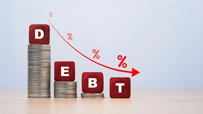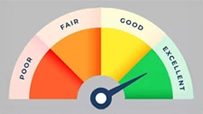How to Keep Your Money Growing in a Volatile Market: A Comprehensive Guide
September 03, 2025

The Indian financial landscape in early 2025 has been quite unpredictable. According to Reuters, equity mutual fund inflows slumped to an 11-month low in March 2025 due to growing concerns around sectoral imbalances and global uncertainties. Simultaneously, the Reserve Bank of India (RBI) cut the repo rate by 25 basis points to 6.00%, marking the second consecutive rate cut aimed at cushioning the economy from external shocks and tariff threats.
Such conditions make it imperative to seek stable avenues for wealth preservation and growth. In this context, Fixed Deposits (FDs) and high-interest Savings Accounts—especially from institutions like Ujjivan Small Finance Bank—emerge as secure and rewarding options.
Why Capital Preservation Matters in Volatile Times
Market volatility can erode wealth quickly if investments are not adequately shielded. Preserving your principal while earning predictable returns should be the core objective during uncertain times.
Key Risks During Volatility:
- Stock market corrections
- Interest rate fluctuations
- Global economic instability
Currency depreciation
Thus, building a diversified yet conservative portfolio that includes fixed-income products is critical.
The Case for High-Interest Savings Accounts
Traditionally seen as a place for liquidity rather than growth, Savings Accounts have evolved significantly. Today, certain banks offer interest rates that rival short-term FDs, without locking up your funds.
Ujjivan SFB's High-Interest Savings Account
One of the standout products in this space is Ujjivan Small Finance Bank’s high-interest Savings Account, which offers:
- Up to 7.50% p.a. for balances above ₹25 lakhs
- 7.25% p.a. for balances between ₹5 lakhs and ₹25 lakhs
- 5.00% p.a. for ₹1 lakh to ₹5 lakhs
- 3.25% p.a. for up to ₹1 lakh
Other Features:
- Quarterly interest pay-outs
- No premature withdrawal penalties
- Easy online access via net/mobile banking
- Insurance coverage up to ₹5 lakhs under DICGC
Advantages Over Regular Savings Accounts
- Better yield on idle funds
- No need to time the market
- Great for emergency or short-term savings
Why Fixed Deposits Still Hold Value
While Savings Accounts provide liquidity, FDs offer stable returns over a fixed tenure, making them ideal for conservative investors.
Benefits of FDs
- Guaranteed returns and higher interest rates
- Suitable for short- and long-term goals
- Loan facility against FD
- Senior citizen interest rate benefits
How to Use Both Together: A Balanced Strategy
Instead of choosing one over the other, consider using both Savings Accounts and FDs strategically.
Option 1: The Laddering Approach
- Keep 3-6 months of expenses in a high-interest Savings Account
- Divide the rest across FDs of varying tenures (6 months, 1 year, 2 years)
Option 2: Goal-Based Allocation
- Use FDs for planned expenses like education, weddings, or house down payments
- Use Savings Account for emergency fund and short-term liquidity
Option 3: Income + Growth Strategy
- Keep retirement corpus in a combination of Savings and Monthly Income FDs
How to Maximize Growth During Market Volatility
Automate Your Savings
Set up automatic transfers to your Savings Account to ensure discipline.
Reinvest FD Maturities Smartly
Instead of withdrawing FD returns, reinvest at current higher rates if applicable.
Monitor RBI Policies
Interest rates on both FDs and Savings Accounts are influenced by RBI decisions. Stay updated to make timely adjustments.
Avoid Locking All Funds
Keep some funds in liquid instruments like high-interest Savings Accounts to remain agile.
Final Thoughts
Having multiple Savings Accounts can be convenient, but neglecting them can lead to penalties, restricted access, and lost financial opportunities. If you have an unused Savings Account, take action now—either close it or ensure you keep it active with periodic transactions. Keeping your finances in check today will save you unnecessary trouble tomorrow.
Secure your future with a Savings Account! Build your wealth effortlessly while enjoying attractive interest rates, instant access to your funds, and seamless digital banking. Whether you're saving for a dream, an emergency, or a better tomorrow, the right account makes all the difference. Open your Savings Account with Ujjivan today and take the first step toward financial freedom!
Disclaimer:
The contents herein are only for informational purposes and generic in nature. The content does not amount to an offer, invitation or solicitation of any kind to buy or sell, and are not intended to create any legal rights or obligations. This information is subject to updation, completion, amendment and verification without notice. The contents herein are also subject to other product-specific terms and conditions, as well as any applicable third-party terms and conditions, for which Ujjivan Small Finance Bank assumes no responsibility or liability.
Nothing contained herein is intended to constitute financial, investment, legal, tax, or any other professional advice or opinion. Please obtain professional advice before making investment or any other decisions. Any investment decisions that may be made by the you shall be at your own sole discretion, independent analysis and evaluation of the risks involved. The use of any information set out in this document is entirely at the user’s own risk. Ujjivan Small Finance Bank Limited makes no representation or warranty, express or implied, as to the accuracy and completeness for any information herein. The Bank disclaims any and all liability for any loss or damage (direct, indirect, consequential, or otherwise) incurred by you due to use of or due to investment, product application decisions made by you on the basis of the contents herein. While the information is prepared in good faith from sources deemed reliable (including public sources), the Bank disclaims any liability with respect to accuracy of information or any error or omission or any loss or damage incurred by anyone in reliance on the contents herein, in any manner whatsoever.
To know more about Ujjivan Small Finance Bank Products Visit:"https://www.ujjivansfb.in"
All intellectual property rights, including copyrights, trademarks, and other proprietary rights, pertaining to the content and materials displayed herein, belong
to Ujjivan Small Finance Bank Limited or its licensors. Unauthorised use or misuse of any intellectual property, or other content displayed herein is strictly prohibited and the same is not intended for distribution to, or use by, any person in any jurisdiction where such distribution or use would (by reason of that person’s nationality, residence or otherwise) be contrary to law or registration or would subject Ujjivan Small Finance Bank Limited or its affiliates to any licensing or registration requirements.
FAQs
1. What is the highest interest I can earn with Ujjivan’s Savings Account?
Up to 7.50% p.a. for balances exceeding ₹25 lakhs.
2. How often is interest credited in the Savings Account?
Interest is credited on a quarterly basis.
3. Is my money safe with Ujjivan SFB?
Yes. Deposits are insured up to ₹5 lakhs under DICGC.
4. What is laddering in FDs?
Spreading investments across different tenures to maximize returns and liquidity.
5. Do senior citizens get better FD rates?
Yes, usually higher than regular rates.
Latest Blogs

APK Fraud: How One Wrong Download Could Empty Your Bank Account
May 13, 2025
Picture this. You’re sipping your evening tea when your phone rings.

Gold Loan LTV Ratio Explained (75% to 85%): What It Means for Borrowers
March 20, 2025
In June 2025, the Reserve Bank of India (RBI) introduced a significant relaxation for gold loan borrowers: the maximum Loan-to-Value (LTV) ratio for loans below ₹2.5 lakh was raised to 85%, up from the long-standing cap of 75%. Loans between ₹2.5 lakh and ₹5 lakh can now go up to 80%, while loans above ₹5 lakh continue under the 75% ceiling.

Good Debt vs Bad Debt: Learn the Difference
August 13, 2025
Every month, millions of Indians wait for the familiar debit alert, an EMI deducted from their account.

Got a Tax Refund? 5 Smart Ways to Put Your 2025 Refund to Work
August 13, 2025
For many taxpayers, there’s a unique sense of relief when a tax refund arrives.

Credit Score Not Improving? 5 Mistakes You Might Be Making
August 13, 2025
For most of us, a credit score feels like a silent judge sitting in the background of our financial lives.





